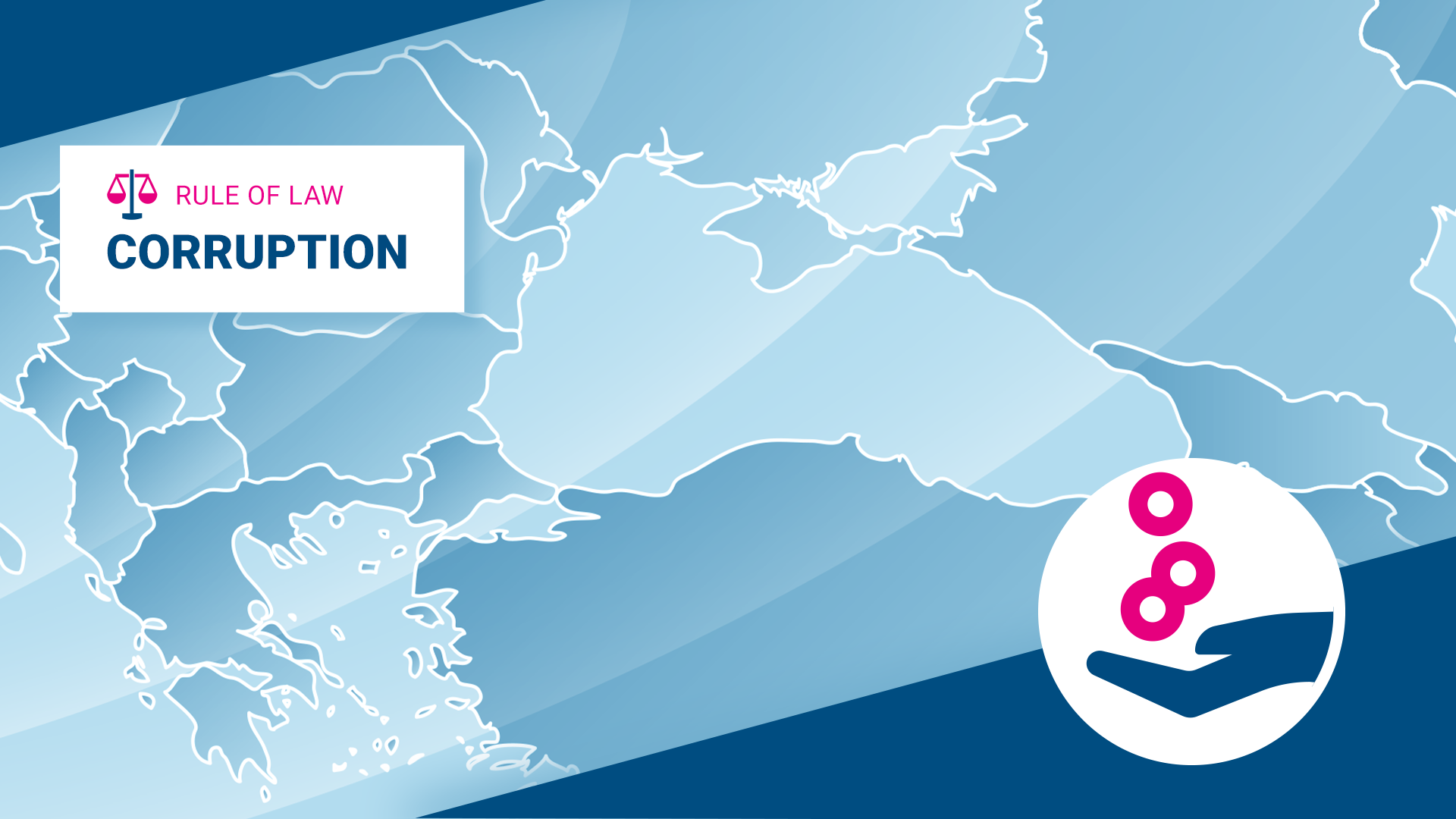Freedom Trends
Corruption: 10 Years Freedom Barometer

Corruption
©Corruption is an aspect of the rule of law which is just a little bit better fought against than the dependence of the judiciary on extra-legal actors. Its impact on human freedom is also tremendous. The misuse of public authority for private gains, usually by state authorities at various levels, destroys the equal playing field both in the economy and in the daily life of citizens, turning them into first- or second-class actors. In some countries, such as Azerbaijan and Russia, corruption is draining out such amounts of national product that it changes the very fabric of society, creating different social classes of people depending on how close they are to those who de facto control most of the industries and national wealth.
The majority of the countries in transition, however, have improved in this field during the past decade. Georgia and Armenia which tries to follow the example of the former have changed a lot, making perhaps the biggest breakthrough. Georgia is today less corrupt than many EU members, though it is neither a candidate nor it received any promises that it might become one. Among new EU members who joined in 2004, Estonia is the champion of the struggle against corruption, but Latvia and Lithuania are also making huge steps to follow it.

Changes in the Corruption Score by Country
What distinguished Georgia and Estonia from the rest of the transition countries are the bold economic reforms that they implemented either in the 1990s or in the early 2000s, soon after emerging from the Soviet system of state control over the economy. Robust privatisations, deregulation and an overall liberalisation of economic life in those two countries have left far less space for state authorities and the political class to misuse their power and public resources. On top of that, reforms of the public administration (in Georgia’s case police reform and in Estonia’s case advanced digitalisation) turned it into a small (“lean”) and efficient service that is more easily controlled by independent institutions and by a flourishing civil society.
LIBERAL ECONOMIC REFORMS HAVE NARROWED THE SPACE FOR CORRUPTION AND DISTINGUISHED GEORGIA AND ESTONIA FROM OTHER TRANSITION COUNTRIES, MAKING THEM LESS PRONE TO CORRUPTION.
Contrary to those two, most ex-Yugoslav republics introduced crony instead of free market capitalism. The role of the government (including public ownership) in the economy remained huge, and public spending is enormous, making it difficult even for the best independent bodies (which are anyway either absent or lacking independence) to check the decision-makers against corruption. Additionally in ex-Yugoslavia, the state-dependency mentality of much of the population, as well as the legacy of the 1990s’ wars, have prevented bolder liberal economic reforms, thus making the field for corruption much broader than it would have been under different circumstances. Thus, from Slovenia to North Macedonia, the level of corruption oscillates year after year.
In the developed countries of Western Europe, namely the EU-12, who have for long been a role model for transition countries, the situation is mixed. In some (Austria, Belgium, Italy, France, Germany, UK, and especially Greece) there is less corruption than ten years ago. But in a number of others, especially those that had been the best in the world (and among some who still are), corruption seems to be (slowly but ominously) picking up the pace once again (e.g., in all Scandinavian countries, the Netherlands, Ireland, etc.). Could one interpret this as the beginning of a ‘harmonisation’ of corruption practices around the continent? At least some of the ‘worst ones’ have learnt a lot from the best ones. But did the best ones also ‘learn’ something, something bad, from the worst ones?
-
Download the full report